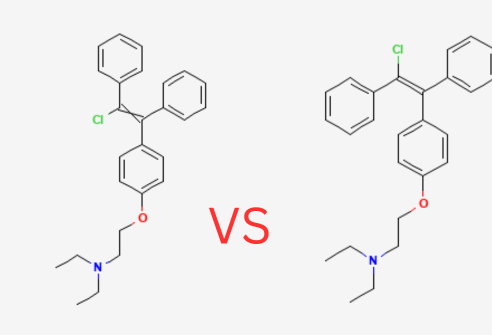Testosterone plays a pivotal role in muscle growth, strength, mood regulation, and overall health. Predominantly known as the male sex hormone, it is crucial for both men and women, influencing everything from physical performance to metabolic function. Exercise, particularly resistance training, is widely recognized for its ability to naturally boost testosterone levels. This hormone’s fluctuation is a normal part of daily life, with levels peaking typically in the morning and dipping in the evening. However, as individuals age, a gradual decline in testosterone levels is observed, emphasizing the importance of a proactive approach to maintain hormonal balance through lifestyle choices, including regular physical activity.

The Science Behind Push-Ups and Testosterone
Push-ups, a quintessential bodyweight exercise, are not only pivotal for building upper body strength but also play a significant role in enhancing testosterone levels. This increase in testosterone is crucial for muscle growth, fat loss, and overall well-being. Here’s how push-ups and exercise contribute to hormonal health and the diverse benefits they bring to the body, inspired by a comprehensive approach similar to that found in detailed resources like Horizon Clinics.
Hormonal Response to Exercise
Physical activity, particularly resistance training like push-ups, triggers the body’s natural hormone production mechanisms. This response includes an uptick in testosterone, a key hormone responsible for muscle repair, growth, and strength. The mechanism behind this involves the pituitary gland, which sends signals to produce more testosterone when the body is subjected to the stress of exercise.
Benefits of Push-Ups on the Body
Muscle Building and Strength
Push-ups engage multiple muscle groups, including the chest, shoulders, triceps, and core. This compound movement challenges the body in a holistic manner, promoting muscle growth and strength. As muscles work to lift and lower the body against gravity, they undergo microscopic tears. The repair process for these tears, fueled by an increase in testosterone, leads to muscle strengthening and growth.
Cardiovascular Health
Although primarily seen as a strength exercise, push-ups also have cardiovascular benefits. The act of engaging multiple muscle groups simultaneously demands increased heart activity to supply oxygenated blood, thus enhancing cardiovascular efficiency.
Metabolic Boost
Regular engagement in push-ups and other resistance exercises can elevate the metabolism. This boost not only helps in burning calories more efficiently during the workout but also increases the resting metabolic rate. An increased metabolic rate means the body burns more calories at rest, aiding in fat loss and energy regulation.
Bone Density
The stress push-ups place on the bones helps in improving bone density over time. This is particularly beneficial as it can reduce the risk of osteoporosis and bone fractures. Testosterone plays a vital role in bone health, further linking push-ups to improved skeletal strength.
Mental Health and Well-being
Exercise, including push-ups, has been shown to release endorphins, known as “feel-good” hormones. These contribute to an improved mood and stress reduction. Moreover, the discipline and accomplishment of a regular exercise regimen can boost confidence and mental toughness.

Variations and Intensity: Maximizing the Benefits
- Standard Push-Up: Targets chest, shoulders, triceps, and core.
- Wide-Grip Push-Up: Focuses on the chest and shoulders.
- Diamond Push-Up: Intensifies the work on triceps and chest.
- Plyometric Push-Up: Boosts explosive power and engages fast-twitch muscle fibers.
Incorporating these variations can enhance muscle engagement and, potentially, testosterone response due to the increased physical challenge and variety, which prevents adaptation and promotes continuous growth.
Beyond Push-Ups: Factors Affecting Testosterone Levels
While push-ups can be an effective component of a testosterone-boosting regimen, it’s crucial to consider other factors such as nutrition, sleep, and stress management. Balanced diets rich in zinc and vitamin D, adequate rest, and effective stress reduction techniques can all contribute to optimal testosterone levels.Beyond regular exercise and push-ups, several strategies can help increase testosterone levels:
- Dietary Adjustments: Including more zinc and vitamin D-rich foods can support testosterone production. Think oysters, lean meats, and fortified dairy products.
- Quality Sleep: Aiming for 7-9 hours per night can significantly affect hormone regulation.
- Stress Reduction: Practices like meditation, yoga, or even leisurely walks can lower cortisol levels, potentially improving testosterone levels.
- Weight Management: Excess body fat, especially around the waist, can negatively impact testosterone levels. Combining cardiovascular exercises with strength training can be effective.
Suffering from low testosterone levels?
In conclusion, while push-ups and a healthy lifestyle can significantly contribute to maintaining optimal testosterone levels, it’s essential to remember that individual needs and responses vary greatly. If you’re concerned about low testosterone levels or are seeking to optimize your hormonal health, professional guidance can make all the difference.
At Empower Men’s Health Clinic, we’re dedicated to supporting men in achieving their health and wellness goals, including addressing concerns related to testosterone. Our team of experts offers personalized consultations to understand your unique situation, providing tailored advice and treatment options designed to enhance your hormonal health and overall well-being.


